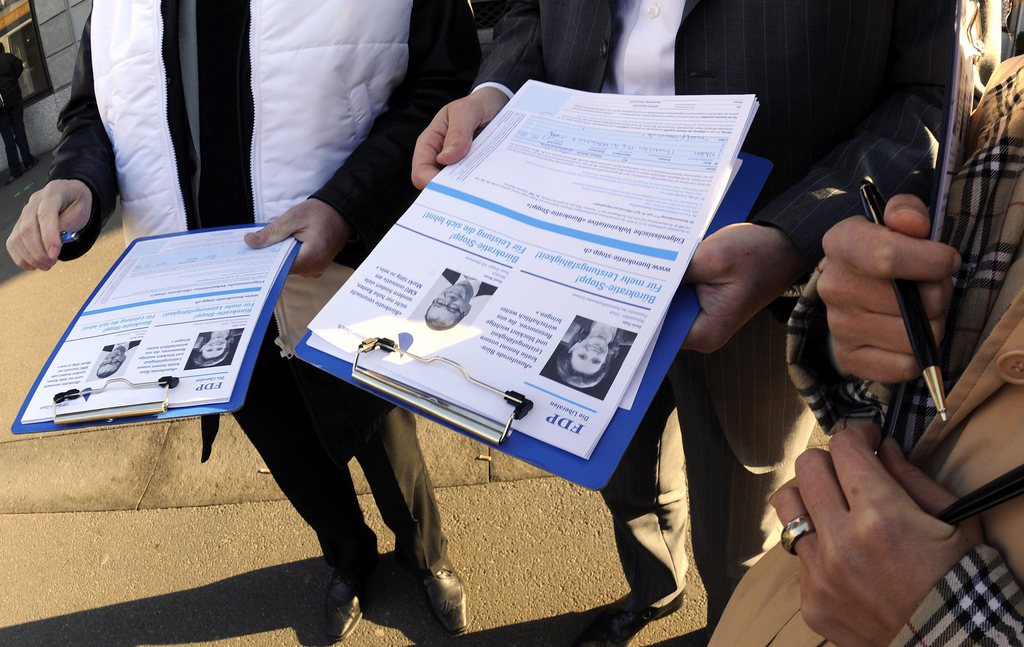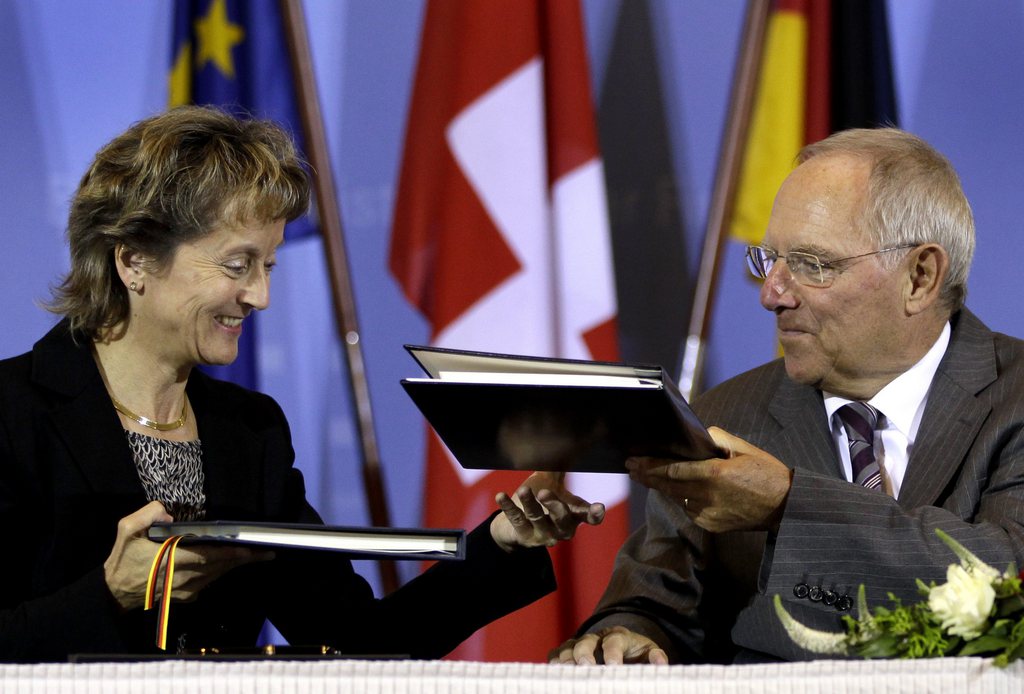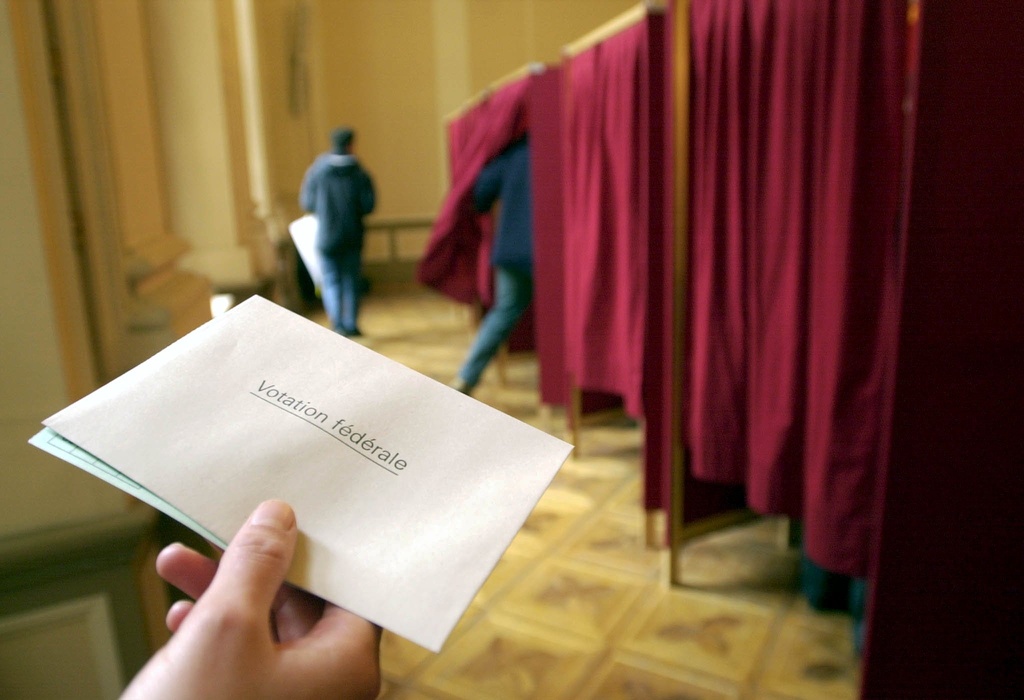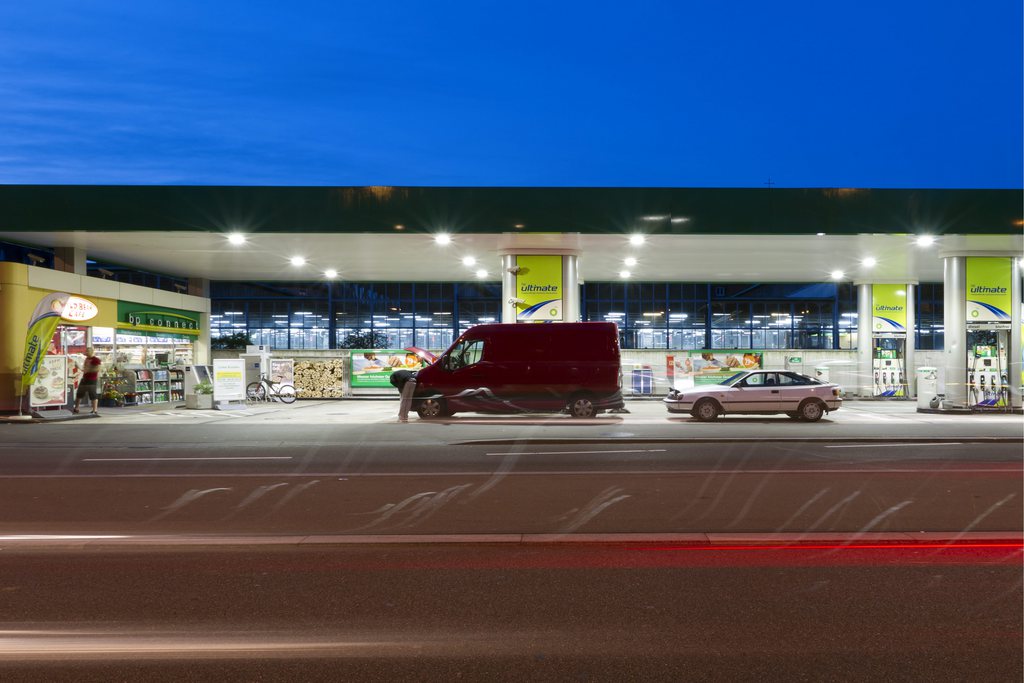People power, a Swiss tradition but new to Europe

Citizens of both Switzerland and the European Union are able to launch initiatives as a political instrument for change. Researchers who compared the two say the scope of such initiatives differs, but both sides can learn from each other.
The study, carried out by two legal experts from the Centre for Democracy at the University of Zurich and the University of Innsbruck in neighbouring Austria, found a great deal of differences, but also some similarities. The two types of initiatives are “distant relatives rather than siblings”, as researcher Lorenz Langer says.
The European Citizens’ Initiative became operative only in April 2012, while the People’s Initiative in Switzerland in its current form has a history of more than 120 years.
Another fundamental difference between these tools of direct democracy is their widely divergent impact on politics. (see infobox)

swissinfo.ch: Are EU citizens interested in the same issues as the Swiss when it comes to launching initiatives?
Lorenz Langer: The topics that seem to concern citizens are very similar. The difference is the extent to which these concerns can actually be put into an initiative.
To give an example: Following the 2011 nuclear disaster of Fukushima in Japan, initiatives were launched both in Switzerland and in EU member countries to opt out of nuclear power.
In Switzerland enough signatures were gathered to force a nationwide vote. But in the EU the attempt was nipped in the bud, because it did not meet the criteria for ballot initiatives set by Brussels.
It was considered beyond the competence of the EU, because nuclear matters on the European level are regulated in a treaty of the European Atomic Energy Community.
Another example is an initiative on a guaranteed basic income. Again it was ruled inadmissible, as experts said it is not a matter than can be regulated at the level of the EU.
So the promoters of the initiative had to re-launch the issue in another version – calling for studies to be conducted on the feasibility and use of basic income, rather than the straight introduction of the proposed benefit.
swissinfo.ch: Your study has identified the political impact of initiatives as one of the major differences. Where is it stronger?
L.L: In the EU potentially nothing may happen even if an initiative succeeds in getting the necessary signatures. Popular participation ends at that stage. Legally the European Commission is not obliged to implement the proposal, it can change it or not take any action at all.
In Switzerland however, only parliament can declare an initiative invalid and on very limited grounds. That has only happened four times since the introduction of the political instrument of an initiative in 1891.
If campaigners collect enough signatures and if they win the subsequent ballot it becomes part of the constitution.
Still, we also face some difficult questions when it comes to the relationship between such changes and existing constitutional principles or international obligations, as illustrated by the decision of the Federal Supreme Court last October not to apply the terms of an initiative to automatically deport criminal foreigners.
swissinfo.ch: Why are you rather critical of the way the EU leadership applies the citizens’ initiative tool?
L.L.: According to the EU treaty, the commission and parliament have to draft and adopt an ordinance, fleshing out the details of a citizens’ initiative. But at that stage in the process, these institutions have been rather sceptical about citizens’ participation.
The requirements they have put down for initiatives indicate – to put it mildly – there is not a deep trust in public participation.

More
How Switzerland’s political system of direct democracy works
swissinfo.ch: Nevertheless what can the Swiss learn from the way the EU is using this political tool?
L.L.: The gut reaction of most Swiss of course is a blunt dismissal of this question since they consider their country to be the undisputed champions of democracy……
But we also face difficulties as the potential clash between direct democracy and human rights and international law has shown, notably in the case of the initiative calling for the automatic deportation of criminal foreigners.
This conflict has become more obvious over the past few years and will occur again with the initiative to push for the enforcement of the above-mentioned automatic expulsion.
We haven’t really found a way to balance direct democracy and international standards. Current proposals suggest introducing a preliminary, non-binding examination of an initiative, or the invalidation of initiatives that violate the core substance of fundamental rights.
But nobody seems to be too happy with the core substance. It is a term that still requires interpretation by legal scholars and courts. The practical consequences, at any rate, are likely to be limited. The least satisfying way to solve the issue is for the courts to come up with their own decisions.
The EU, however, has addressed this problem from the very beginning. It made clear that any initiative that clashes with the principles of the Union is thrown out. These fundamental values include the respect of human dignity, freedom, democracy, protection of minority rights.
swissinfo.ch: Coming back to the EU, what needs to be done to make the 28-nation bloc more democratic?
L.L.: It might sound like a contradiction, but at least in the context of the European-style initiative, more democracy would require greater powers for the EU. Many initiatives are invalidated because their subject matter does not fall within the Union’s competencies.
Promoters of direct democracy within EU member states often tend to ignore this fact.
The EU court and parliament will have to put pressure on the Commission to be favourable towards initiatives to bring the Union a bit closer to its citizens.
A European Citizens’ Initiative is an invitation to the European Commission to propose legislation on matters where the EU has competence to legislate.
Such an initiative needs the backing of at least one million EU citizens, coming from at least seven out of the 28 member states.
A minimum of signatories is required in each of those seven member states.
EU citizens can in principle sign up over the Internet. The formal requirements are regulated on a national level. In some countries citizens are asked to enter their passport numbers, while in others just their names are entered.
A People’s Initiative in Switzerland is a formal amendment to the constitution.
Campaigners have to collect at least 100,000 signatures within 18 months which paves the way for a nationwide vote.
Parliament and the government debate the initiative and issue recommendations for voters.
By August 2013, only 20 initiatives have won a majority at the ballot box. A total of 420 initiatives have been launched and 184 have come to a vote since 1891. All the others failed at an early stage, were withdrawn or invalidated.
At the moment signatures are being collected for at least 16 initiatives.
The authors Lorenz Langer from the Centre for Democracy at the University of Zurich and Andreas Müller of the University of Innsbruck in Austria consulted legal documents.
Their research for the European citizens’ initiative focused on the restrictions concerning the contents of initiatives, comparing Switzerland and the EU.
Langer, a legal expert and historian, placed special emphasis on the 120-year history of initiatives in Switzerland.

In compliance with the JTI standards
More: SWI swissinfo.ch certified by the Journalism Trust Initiative







You can find an overview of ongoing debates with our journalists here . Please join us!
If you want to start a conversation about a topic raised in this article or want to report factual errors, email us at english@swissinfo.ch.